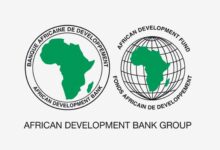Multiple undersea cable cuts disrupt data, voice services along West African coast – NCC
 The Nigerian Communications Commission (NCC) says a combination of cable cuts, resulting in equipment faults on the major undersea cables along the West African Coast, have negatively impacted data and fixed telecom services in several countries of West Africa.
The Nigerian Communications Commission (NCC) says a combination of cable cuts, resulting in equipment faults on the major undersea cables along the West African Coast, have negatively impacted data and fixed telecom services in several countries of West Africa.
The affected submarine cable comes from Europe and passes through the East Coast of Africa. It had a deep cut in the Red Sea and the cut affected other submarine cables connected to it, such as the West African Submarine Cable (WASC), African Coast to Europe (ACE) submarine cable, and MainOne submarine cable, that have landing ducts on the shores of Nigeria.
Banks, Payment Service Banks (PSBs), schools, organisations and agent banking outlets that had their Internet Service Providers (ISPs) connected to MainOne submarine cable, WASC and ACE submarine cables in Nigeria had serious service disruptions on Thursday, as their customers could not access their internet services.
BRANDPOWER reports that in a statement in Abuja on Friday, NCC’s Director of Public Affairs, Dr Reuben Muoka, said the countries included Nigeria, Ghana, Ivory Coast, Senegal, Cote de Ivoire, among others.
Muoka said that the cuts occurred somewhere in Cote de’Ivoire and Senegal, with an attendant disruption in Portugal.
“Cable companies – West African Cable System (WACS) and African Coast to Europe (ACE) in the West Coast route from Europe have experienced faults while SAT3 and MainOne have downtime.
“Similar undersea cables providing traffic from Europe to the East Coast of Africa, like Seacom, Europe India Gateway (EIG), Asia-Africa-Europe 1 (AAE1), are said to have been cut at some point around the Red Sea, resulting in degradation of services across on these routes.
“In Nigeria and other West African countries, Internet access and speed have experienced disruptions in the networks of service providers in the affected countries,” Muoka said.
According to him, operators of these cables have commenced repairs already, and services were gradually being restored.
“They have promised to work round the clock to ensure that services are restored to the affected countries within the shortest possible time.
“It is important to bring this information to the knowledge of corporate and individual consumers on these services.
Chairman, Association of Licensed Telecoms Operators of Nigeria (ALTON), Gbenga Adebayo, also confirmed the cut on the submarine cable in the Red Sea. But Adebayo explained that Nigeria was not significantly impacted by the cut, because Nigeria had multiple submarine cables from Europe and Asia, and did not depend on a single submarine cable.
According to him, “We have been informed of a major cut on one of the submarine cables in the Red Sea, but Nigeria is not significantly impacted by the cut on that particular submarine cable, because Nigeria has several submarine cables landing at the sea shore of the country.
“The countries that are significantly impacted by the cut on that particular submarine cable are Ghana, Liberia, Cote d’Ivoire and some parts of South Africa. Because some of the ISPs in Nigeria are connected indirectly to that submarine cable, Nigeria was slightly affected and operators are currently re-routing customers to their backups and to other existing submarine cables in Nigeria. Those affected in Nigeria will suffer the impact for a while, pending when restoration is completed, which will last for few days.”
Asked if the cut on the submarine cable could be an act of sabotage, the spokesperson of the telecommunications companies (telcos) said it would be difficult to say if it was an act of sabotage, since the location of the submarine cable at the bed of the sea is several kilometres below sea level. He said it would take a coordinated attempt to damage a submarine cable, since it would involve experts and sophisticated equipment to achieve such destruction.
Adebayo said investigation was ongoing to ascertain the cause of the cut, and promised to make the investigation public.
Some submarine operators, who spoke to THISDAY, also ruled out sabotage. Some of them said the cut could be caused by a natural disaster or the effect of sharks and propellers from moving ships. They said they had informed their customers of the damage and the effect, promising that restoration of services will be completed soon.
9PSB, one of the licensed payment service banks in Nigeria, sent out messages to their customers, telling them about the service disruption and the ongoing restoration plan.
Part of the message from 9PSB read, “There valued customers, this is to inform you about an ongoing emergency service resolution following a challenge with our ISPs. While we are working to quickly restore services, you may experience disruptions while accessing our services, and, therefore, we request your understanding while we conclude the resolution. You will be advised as soon as services are fully restored.”
Similarly, MTN, wrote in a message to its customers, “We apologise for the challenges you may be experiencing with internet speed and accessing data services at the moment.
“This is as a result of damage to international undersea cables across East and West Africa.
“The repair process is ongoing to resolve the situation as soon as possible.
“Please, look out for further updates.”
NAN/Thisday












